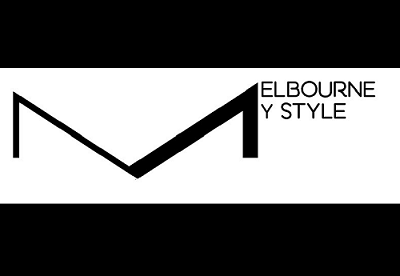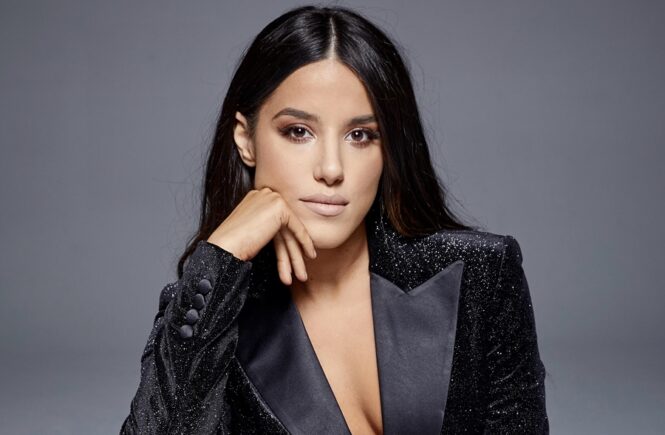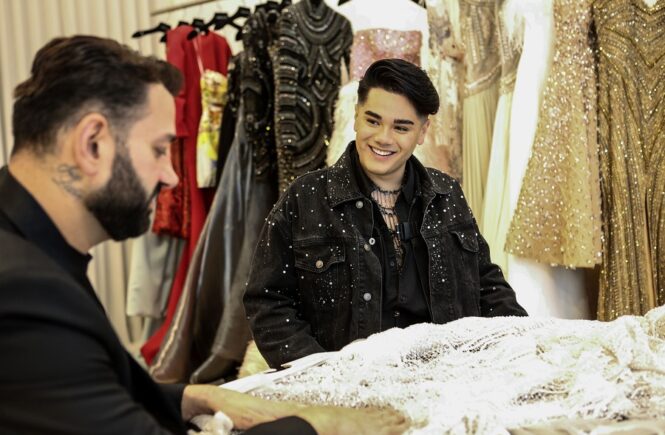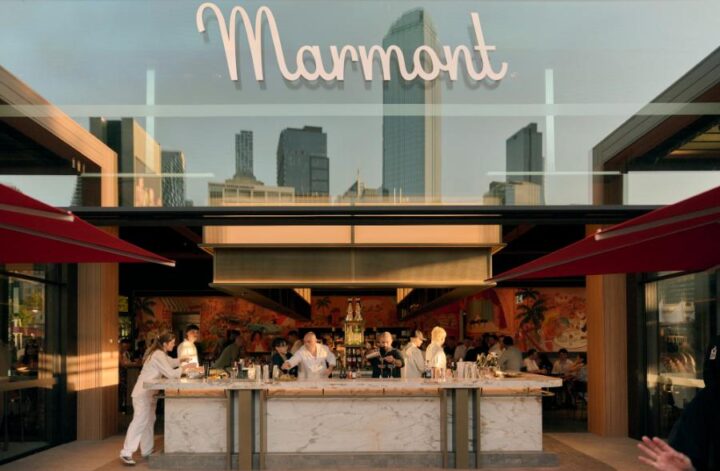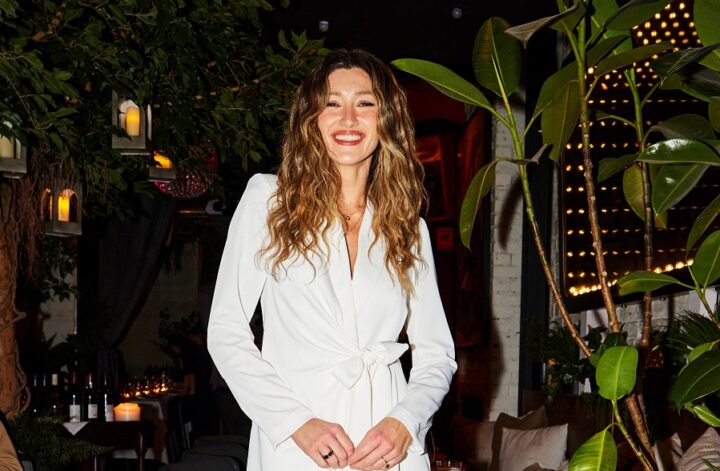Effie Kats the label started in April 2018 with a strong focus on custom clothing. Effie says, “that was my only way to start back, to relaunch back into the fashion industry after my previous partnership with Zachary the label. I didn’t really have a budget but I already had a workroom, so I began seeing clients one on one and started making small runs and pieces to sell out of our showroom, keeping in mind our heavy focus on custom.”
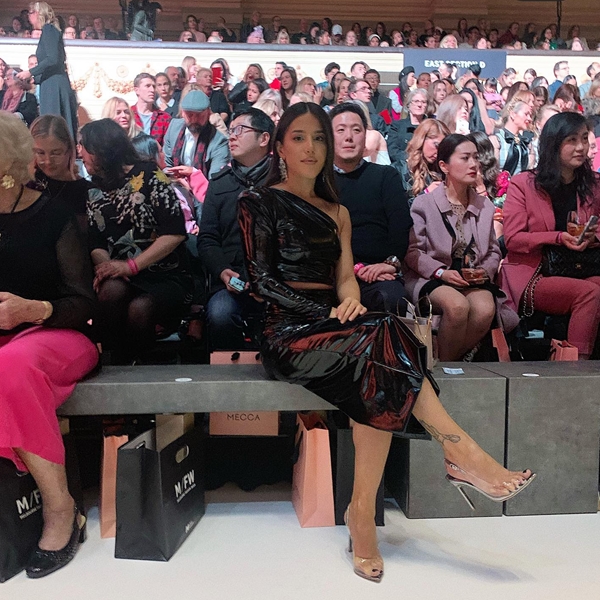
The blood of a fashion designer runs deep, Effie attributes her fascination with fashion to her father who is a tailor and grandmother a seamstress. With enthusiasm and perseverance, Effie found a niche in the market for women’s suiting. Effie says, “I find a lot of retailers in Australia play it safe and are budget conscious with the overheads and costs associated with taking risks when it comes to playing with edgy silhouettes, fabrics, and colour, because I have a smaller operation I’m able to take this risk.”
Kats draws her inspiration from places she visits, architecture, and different cultures. Effie says, “It also depends on the season and where I’m going with things. I look at classic tailoring from the ’40s and dresses from the ’50s these are the shapes and silhouettes I love. I also draw inspiration from the runways overseas and believe it’s so important to see what’s happening and the influences that are going to take shape, such as when PRADA introduced the corset. No one was really bringing this to the mainstream, so I created a corset design that just went nuts. Again, with suiting, I could see that GUCCI was doing suiting with bright colours and beautifully tailored silhouettes, but no one was bringing this to women in a mainstream way.”
Effie wanted to bring suiting to women at an affordable price point with the same high-end aesthetic.
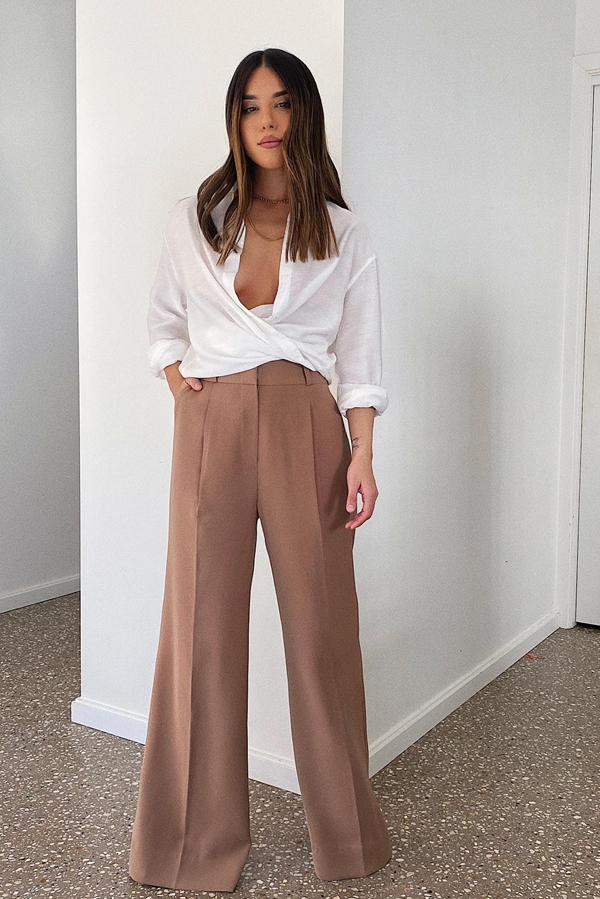
Effie Kats answers the questions of uncertainty the fashion industry faces, during the current global pandemic.
Given the level of mass production that preceded Covid – 19 do you think shoppers will re-think what they need to buy, will they buy less and of a higher quality?
Effie says, “I really hope so because fast fashion is something that I am not a fan of. I think this has killed a lot of smaller designers, even globally and then everything begins to look the same. Our small local designers are the ones that supply that small different edge as opposed to the majors. I hope consumers start thinking differently. You can buy a jacket from Zara for $200 and that’s fantastic but you’re killing designers who are giving you unique bespoke pieces. I hope people begin to invest in core items.”
“I say to all my clients, tell me about your wardrobe, tell me where the gaps are so that I can give you pieces that you can wear in lots of different ways.”
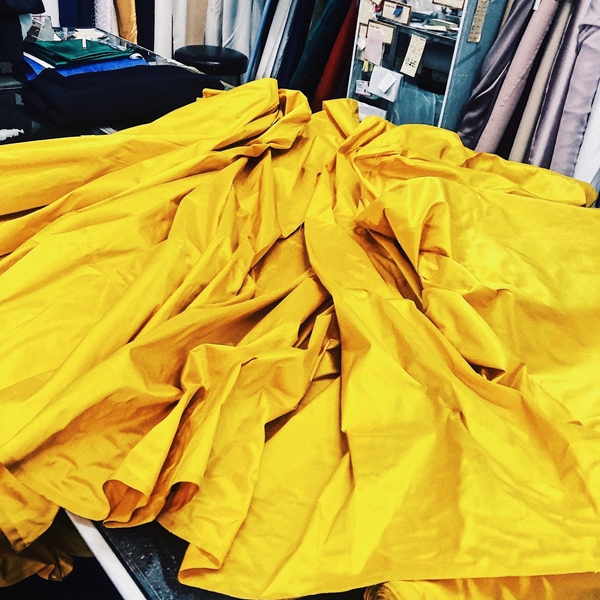
Will you adapt/ change your designs at all given the current climate?
Effie says, “that’s already happened in a sense with my other label called Bayse Brand everyone’s obviously home and in isolation and so people want to be comfortable and so trackies are the go. We just released our tracksuit and it’s been incredibly popular.
With Effie Kats my bespoke label I really want to give people staple pieces that they can work into their wardrobe in many different ways, so I’m shifting my model to more mini drops and interchangeable pieces.
Three or four years ago no one was thinking of sustainability and now this is at the forefront.”
Are your customers more conscious about shopping for sustainable fashion? Effie says, “Look some are and some aren’t it depends if they know about it and if this is something, they are passionate about. I think that overtime sustainability will become more prevalent to consumers when shopping.”
Has there been an increase in online purchasing during this current isolation period? Effie says, “definitely, definitely, definitely. Obviously, my label Bayes Brand is online and also our wholesalers, but even with my custom label Effie Kats I’m so glad we went online because at the moment face to face and bricks and mortar is in a really dangerous position with social distancing and so much uncertainty, something that the world has never seen before. It’s forced brands and retailers to really adapt their model and to push more for online shopping.”
What transformations do you foresee for the Fashion Industry post-Covid? Effie says, “there was a frivolity in the industry, and a lot of ascetics that designers were putting out there weren’t really relevant to people. I think unfortunately what we will see is a mass culling, because of what’s happened, because of how Covid has impacted the industry but now I believe we will see a lot of innovation. Looking back at history after devasting times there is a resurgence in design and inspiration. For me personally looking back at it, I’ve been so burnt out with the constant demand and pressure to produce. Through Covid and during this break I’ve had a chance to slow down and become more inspired.”
“Comfortable, wearable and Interchangeable pieces are the way to go right now”
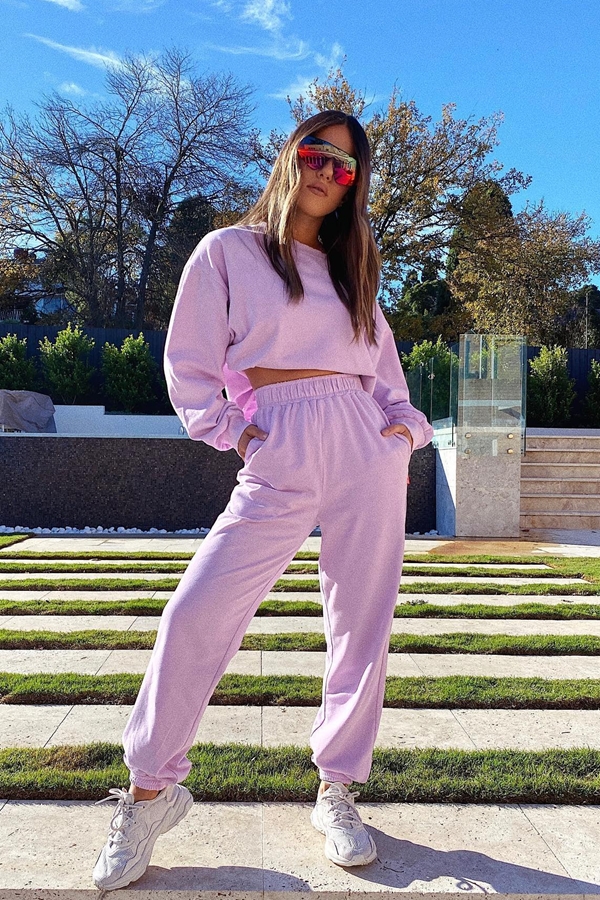
What’s Effie been up to during isolation? Effie says, “I’ve had different periods of isolation, in the beginning it was quite stressful and then I went through this whole who am I as a designer! It’s definitely changed me for the better, for me throughout my journey there has been massive changes in the industry and life around us that have been really scary and throughout my scary periods I’ve always come up with something innovative. It’s that adage through destruction comes creation!”
Do you think it’s important to bring a manufacturing base back to Australia? Effie says, “I don’t believe we can do it with fashion. So many factors need to be taken into account, like the influx of migrants to Australia the Greeks the Italians and Vietnamese that had that technical skill and now, unfortunately, no one is going to university learning how to be a seamstress anymore, that’s just a fact. It’s hard to find that workforce and quality control is very difficult. We have limited factories that offer what we need. We try and implement Australian made wherever we can it works in some ways and not in others. If we want to make small runs and get them out, then yes, we can. All my stretched pants are all made here, what I can make here I do. But at the end of the day people won’t pay exorbitant amounts for a T-shirt for example, it’s just not realistic we can’t compete. Whilst we are Australian citizens, we must remember we are also global citizens. It’s important that we support trade wherever we can. We must remember however to work with people and factories that have integrity.”
Editor in Chief Melinda Sullivan
Shop online Effie Kats https://www.effiekats.com/
Bayes Brand https://www.baysebrand.com/
